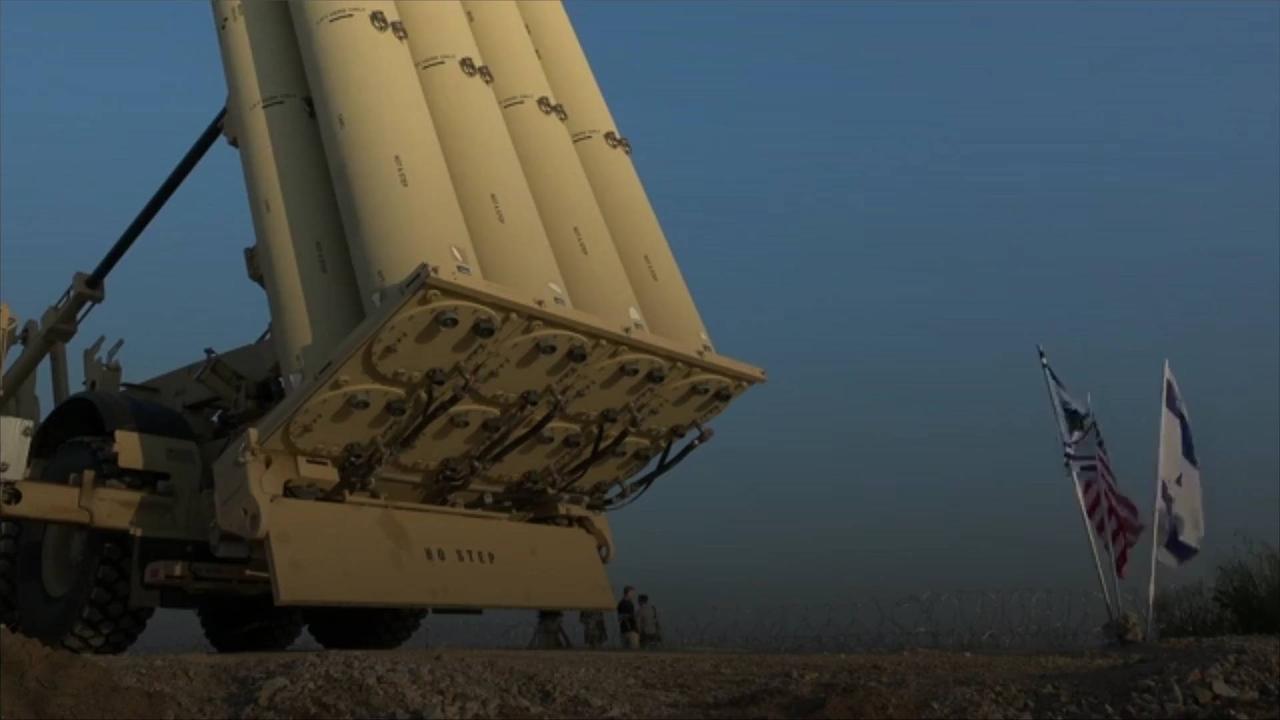
US Deploys THAAD , Missile Defense System , Citing Growing Iranian Threat.
'Newsweek' reports that the United States military will deploy advanced anti-ballistic missile defense systems in the Middle East.
.
The Department of Defense (DoD) said that the U.S. is looking to prevent escalation in the region amid concern that Iran may become involved with the conflict.
On October 22, U.S. Defense Secretary Lloyd Austin said that the U.S. would deploy a Terminal High Altitude Area Defense (THAAD) system.
.
On October 22, U.S. Defense Secretary Lloyd Austin said that the U.S. would deploy a Terminal High Altitude Area Defense (THAAD) system.
.
Austin said the decision to deploy the THAAD system followed "recent escalations by Iran and its proxy forces across the Middle East Region.".
According to Lockheed Martin, the THAAD system is meant to defend against short, medium and intermediate-range ballistic missiles.
According to Lockheed Martin, the THAAD system is meant to defend against short, medium and intermediate-range ballistic missiles.
In addition to the THHAD battery, a number of other military resources will be deployed to an undisclosed eastern Mediterranean location.
According to Austin, the U.S. has deployed "additional Patriot battalions to locations throughout the region to increase force protection for U.S. forces." .
Austin added that the USS Dwight D.
Eisenhower has been sent to join the USS Gerald R.
Ford, becoming the second carrier strike group deployed in the region.
Austin added that the USS Dwight D.
Eisenhower has been sent to join the USS Gerald R.
Ford, becoming the second carrier strike group deployed in the region.
'Newsweek' reports that troops in the U.S. have already received orders to prepare for deployment.
.
Austin said the move is meant to "further increase our force posture and strengthen our capabilities and ability to respond to a range of contingencies.".
Austin said the move is meant to "further increase our force posture and strengthen our capabilities and ability to respond to a range of contingencies."

